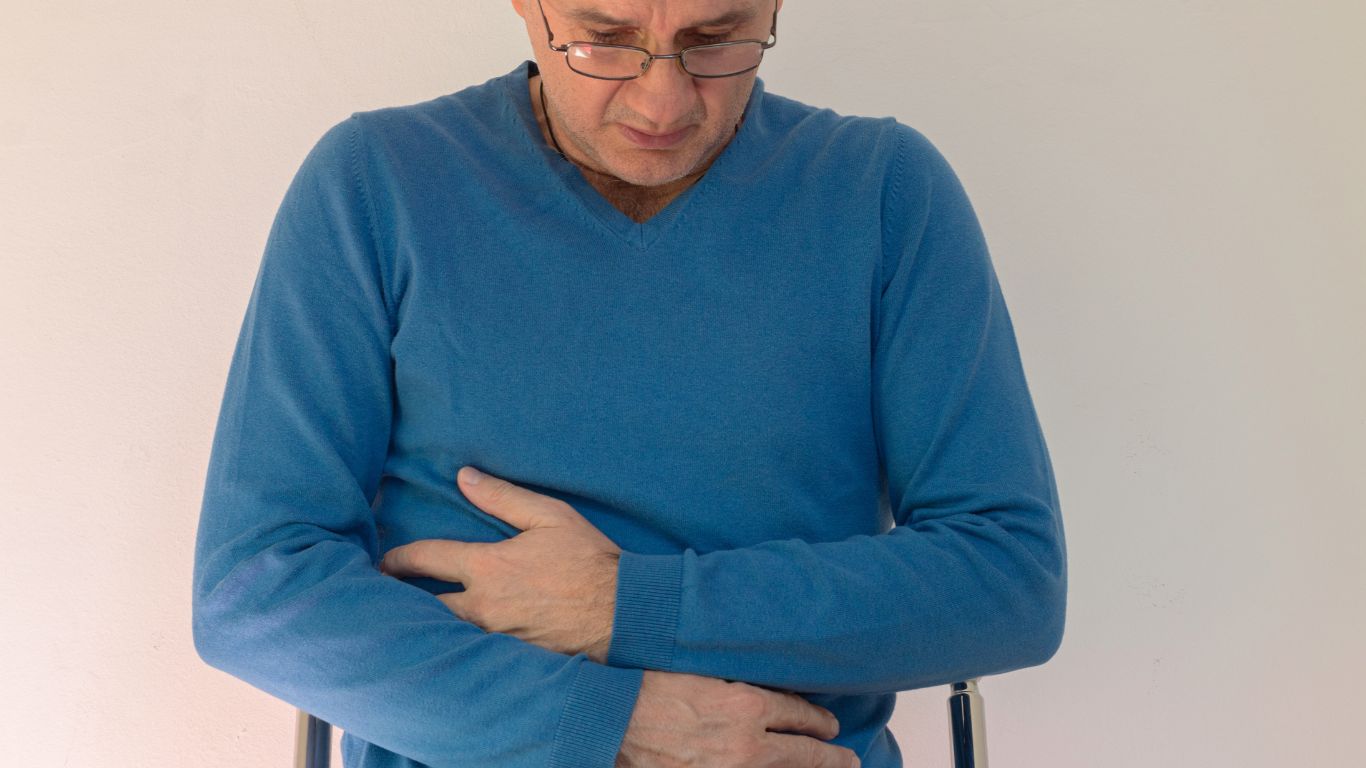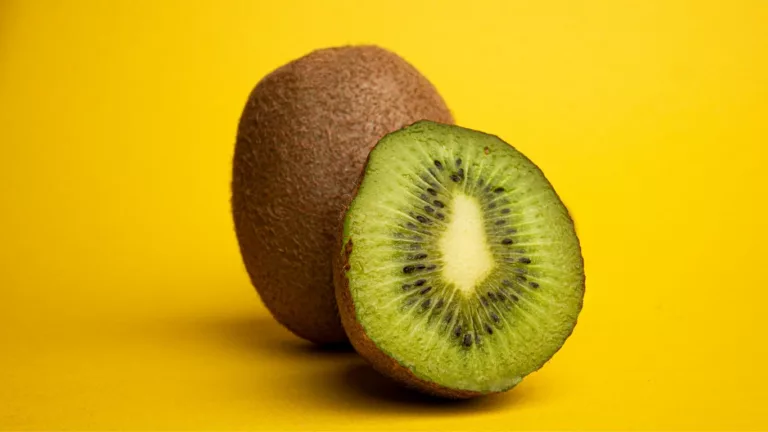How to Ease GERD and Bloating After Dairy Without Stress
When I first started working in a gastroenterology clinic, I honestly didn’t realize how many folks struggled with GERD and bloating after dairy. It wasn’t just older patients, either — we’d see young adults, athletes, busy moms — you name it. Some would come in thinking they had lactose intolerance, but their symptoms were more stubborn than just stomach gurgles or a bit of gas. GERD (gastroesophageal reflux disease) paired with bloating after a bowl of cereal or a latte? That’s a combo a lot of people overlook — but trust me, it’s more common than you’d think.
What’s Really Going On with GERD and Dairy?

So, here’s the scoop. GERD happens when stomach acid flows backward into the esophagus. That annoying, sometimes burning sensation behind your breastbone? Yep, that’s acid reflux. Now, add dairy into the mix — especially full-fat milk or cheese — and for some people, it feels like adding gasoline to a fire.
Many patients I’ve spoken with swore off spicy food thinking that was the only culprit, only to realize that their daily yogurt or afternoon iced coffee with cream was the real instigator. I remember one patient who told me, “I thought Greek yogurt was healthy… why does it make me feel like I swallowed a balloon?”
Why Dairy Can Trigger GERD and Bloating
Let’s break it down. Dairy products can be heavy on fat, which tends to slow digestion. This gives stomach acid more time to hang around — and more chance to sneak up into the esophagus. But that’s not the only issue:
- Lactose sensitivity: Not everyone is full-blown lactose intolerant, but even mild sensitivity can lead to bloating, gas, and abdominal discomfort.
- Relaxation of the lower esophageal sphincter (LES): That’s the little valve that’s supposed to keep acid in your stomach. Fatty dairy can cause it to relax too much.
- Fermentation of sugars: Lactose that doesn’t get digested properly can ferment in the gut, leading to bloating.
In the clinic, we’d often recommend patients keep a food diary. It was amazing to see patterns appear. That creamy Alfredo sauce? GERD flare. Ice cream before bed? Nighttime bloating and belching.
The Overlap: GERD and Bloating After Dairy

GERD and bloating might seem like separate issues, but they love showing up hand-in-hand — especially after dairy. You’re not just dealing with acid creeping up your throat — there’s also that tight, full feeling in your belly, often accompanied by burping, gurgling, or even nausea.
From what I’ve seen, many people don’t realize these two symptoms can be triggered by the same food group. If you’re reading this and thinking, “Wait… that’s me!” — you’re not alone.
Common Symptoms to Watch Out For
- Heartburn (burning in the chest after meals)
- Regurgitation (sour liquid coming back up)
- Bloating and that “tight jeans” feeling even if you haven’t overeaten
- Excess gas or burping, especially within an hour or two of eating dairy
- Nausea or loss of appetite after creamy or cheesy meals
And for some, it’s not even the traditional culprits. I had a patient who only drank skim milk and still had symptoms. Turns out, even low-fat dairy can be a trigger for some people if their system is sensitive.
How Your Gut Reacts to Dairy — More Than Just Lactose

Most people jump to lactose when they think of dairy issues, and yes — that’s a big part of it. But in the GI world, we also look at casein (a milk protein), fat content, and the overall digestion process. When your gut isn’t happy, everything slows down. That sluggish movement leads to fermentation, which leads to — you guessed it — gas and bloat.
Plus, if GERD is already in play, a bloated stomach can add pressure on the LES, making reflux worse. It’s a frustrating cycle — one that a lot of my patients only started to understand after they started paying close attention to how they felt after meals.
Quick Tip from the Clinic
If you suspect dairy might be behind your symptoms, try cutting it out for 7–10 days. Then reintroduce it slowly and keep a log. Pay attention not just to heartburn but to how your stomach feels 30–60 minutes after eating. It’s not just about the reflux — the bloating tells a story, too.
Small Changes That Make a Big Difference

Back in the clinic, we didn’t push folks to cut everything out cold turkey. Honestly, that can backfire. It’s overwhelming, and let’s be real — some people live for their morning latte. What we suggested instead was starting with small, manageable swaps.
One patient — I still remember her because she was hilarious — told me, “I can quit cheese, but if you touch my coffee creamer, we’re gonna have problems.” Totally get it. For her, we tried a dairy-free oat creamer, and guess what? The bloating calmed down, and the reflux episodes started fading. Sometimes, it’s about meeting people where they’re at and finding what works without flipping their whole world upside down.
Smart Substitutes to Try
- Oat milk or almond milk instead of cow’s milk
- Dairy-free yogurts with coconut or almond base
- Lactose-free cheese (some brands taste surprisingly good!)
- Vegan creamers for your coffee that don’t sacrifice flavor
And listen, these aren’t just trendy health-food swaps — they make a real difference for folks dealing with GERD and bloating after dairy. The best part is that most grocery stores carry these options now, so it’s way easier than it was even a few years ago.
Listening to Your Body (Even If It Whispers)

One thing I learned working with gastro patients is that our bodies usually whisper before they scream. Mild bloating or occasional heartburn might seem like no big deal, but over time, it can snowball into something more serious if left unchecked.
I’d always encourage patients to be a little bit of a food detective. Not in a stressful, obsessive way — but with curiosity. Ask yourself:
- How do I feel after eating dairy?
- Does my stomach feel tight, or do I get gassy and burpy?
- Do I notice reflux or chest burning after creamy meals?
Keeping a log for even a week can be super eye-opening. A lot of times, the pattern stares right back at you once it’s on paper.
Why Timing Matters Too
Let’s not forget the when. Eating dairy late at night? Total setup for nighttime GERD. You lay down, gravity gives up, and the acid gets to party in your esophagus. We’d often tell patients to avoid rich dairy-based meals at least three hours before bed.
Don’t Ignore Stress (Yep, It’s a Factor)

I know this sounds like a curveball, but hear me out — stress seriously messes with your gut. I’ve had patients say, “I was fine with dairy for years, but now I can’t touch it without problems.” And sometimes, it wasn’t the food that changed. It was life. A divorce, a new job, a move — stress puts your digestive system on edge.
Stress tightens everything — including your gut motility. That can slow digestion, trap gas, and increase bloating. Plus, stress can make your body produce more stomach acid or make your esophageal sphincter more relaxed. Combine that with dairy, and boom — reflux and bloating double-whammy.
Simple Stress-Reducing Habits
- Try walking after meals instead of sitting right down
- Practice deep belly breathing — even 3-5 minutes helps
- Don’t multitask while eating — enjoy your food, chew slowly
These tweaks seem small, but they help a lot. One patient called it her “mealtime mindfulness makeover,” and I loved that. She wasn’t just eating differently — she was treating her digestion with respect.
Supplements and Digestive Support
For folks who didn’t want to quit dairy altogether, we sometimes talked about trying lactase enzyme supplements. These help break down the lactose in milk, making it easier on your gut. Just be aware — they’re not magic pills. They work for some people, especially with mild sensitivity, but not always if GERD is part of the mix.
We also saw some patients benefit from probiotics — especially if their bloating was more consistent or came with irregular bowels. Of course, always talk with your doctor or a GI specialist first. Not all probiotics are the same, and picking the right strain matters.
When to See a GI Specialist
Okay, real talk: if you’ve been struggling with GERD and bloating after dairy for a while, don’t just suffer in silence. Sometimes it’s more than just a food reaction. It could be underlying reflux disease, delayed gastric emptying, or something else entirely.
In our clinic, we ran diagnostic tests for patients with persistent symptoms. Things like upper endoscopy, pH monitoring, or even lactose hydrogen breath tests helped us see what was really going on under the hood.
The bottom line? You don’t have to live with discomfort. There are answers, and more importantly — there’s relief.
Practical Lifestyle Tips to Manage GERD and Bloating After Dairy

Over the years working in the clinic, I noticed that medication alone rarely solved everything. It’s the lifestyle habits that often tip the scales. If you’re struggling with GERD and bloating after dairy, making some simple changes can make a world of difference.
Here are some of the strategies that I’ve seen actually help my patients feel better — and stick with it:
- Eat smaller, more frequent meals: Big heavy meals, especially with lots of dairy, can overwhelm your stomach and increase reflux.
- Stay upright after eating: Avoid lying down for at least 2-3 hours. Gravity helps keep stomach acid where it belongs.
- Identify and avoid personal trigger foods: Keep tweaking your food diary to discover which dairy items cause flare-ups.
- Manage weight if needed: Excess weight can increase abdominal pressure and worsen GERD symptoms.
- Wear loose-fitting clothing: Tight clothes around your midsection can aggravate reflux and bloating.
One of my patients, who was a baker by profession, shared how switching to almond milk in her recipes reduced her afternoon heartburn significantly. It’s small changes like that — swapping out ingredients without losing what you love — that often lead to success.
The Importance of Hydration and Fiber
Another piece that often gets overlooked: water and fiber. Drinking enough water helps dilute stomach acid and aids digestion. Meanwhile, fiber keeps things moving smoothly in your gut, helping to reduce bloating caused by constipation.
However, a heads-up — if you’re suddenly ramping up fiber intake, do it gradually. Too much too fast can backfire and cause even more gas and bloating, which no one wants.
When Medications Might Be Necessary

Sometimes, despite best efforts, lifestyle changes aren’t enough. GERD can be persistent, especially when complicated by dairy-induced bloating. In these cases, medications can be a helpful part of the puzzle.
During my time in the clinic, proton pump inhibitors (PPIs) and H2 blockers were the go-to drugs for reducing acid production. They can provide significant relief from the burning sensation of reflux. But here’s the catch — they don’t directly treat bloating or lactose sensitivity.
So if you’re still feeling bloated after cutting out dairy or taking reflux meds, it might be time to revisit your diagnosis with your healthcare provider. Sometimes adding digestive enzymes or probiotics, as we talked about before, can complement treatment.
Important Reminder
Never start or stop medications without talking to your doctor. And don’t rely solely on meds to “fix” the problem — diet and lifestyle play a huge role in long-term relief.
Final Thoughts: Finding What Works for You
There’s no one-size-fits-all solution when it comes to GERD and bloating after dairy. Each person’s body reacts differently, and your symptoms may come and go depending on many factors — stress, the type of dairy, how much you eat, even your sleep patterns.
From my experience as a Medical Assistant in a Gastroenterology Clinic, the key is patience and awareness. Start by tuning in to how you feel after eating dairy, try some simple swaps, and don’t be afraid to seek professional help if things don’t improve.
Remember, your gut is like a delicate orchestra — every part needs to work in harmony. With the right tweaks and care, you can enjoy your meals without the discomfort of GERD or bloating.
References
Disclaimer
This article is for informational purposes only and is not intended as medical advice. If you have persistent symptoms of GERD, bloating, or any digestive concerns, please consult a healthcare professional for a personalized diagnosis and treatment plan.

Camellia Wulansari is a dedicated Medical Assistant at a local clinic and a passionate health writer at Healthusias.com. With years of hands-on experience in patient care and a deep interest in preventive medicine, she bridges the gap between clinical knowledge and accessible health information. Camellia specializes in writing about digestive health, chronic conditions like GERD and hypertension, respiratory issues, and autoimmune diseases, aiming to empower readers with practical, easy-to-understand insights. When she’s not assisting patients or writing, you’ll find her enjoying quiet mornings with coffee and a medical journal in hand—or jamming to her favorite metal band, Lamb of God.







